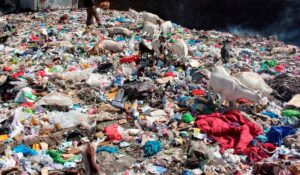Somalia has officially joined the ranks of environmentally conscious nations by banning single-use plastics, aligning with the regional movement to curb the use of non-biodegradable materials in the fight against global warming.
The decree, issued by the Ministry of Environment and Climate Change on Thursday, sets June 30, 2024, as the deadline for the cessation of single-use plastics, allowing a five-month grace period for importers and users to adapt to the new regulations.
The directive specifically targets businesses involved in bag importation, manufacturers, retailers, and commercial establishments. The Ministry’s statement emphasizes that after the specified date, the importation and use of single-use bags will be strictly prohibited.
Somalia’s proactive approach includes a grace period aimed at facilitating a smooth transition for businesses. During this time, the Ministry encourages stakeholders to explore environmentally friendly alternatives to plastic bags. Collaborative efforts with the industry will be crucial in identifying viable options.
Also, read; Zanzibar Teams Up with Chelsea for Tourism Promotion

The ban encompasses the production, importation, trading, and distribution of single-use plastics, creating a unified front against environmental degradation across the EAC region. Somalia’s Environment and Climate Change Minister, Khadija Mohamed Al-Makhzoumi, emphasized that the decision is a proactive step to address environmental challenges at the local level.
A study by the Geneva Environmental Network underscores the health risks associated with plastics, citing toxic chemical additives and pollutants that can threaten human health. These hazards include the potential to cause cancer, disrupt hormones affecting reproductive health, and contribute to cognitive impairment.
 As Somalia embraces this pivotal environmental initiative, the nation is poised to contribute significantly to the global effort to reduce plastic pollution. The ban reflects a commitment to sustainable practices and underscores the importance of collective responsibility in safeguarding the planet for future generations.
As Somalia embraces this pivotal environmental initiative, the nation is poised to contribute significantly to the global effort to reduce plastic pollution. The ban reflects a commitment to sustainable practices and underscores the importance of collective responsibility in safeguarding the planet for future generations.

